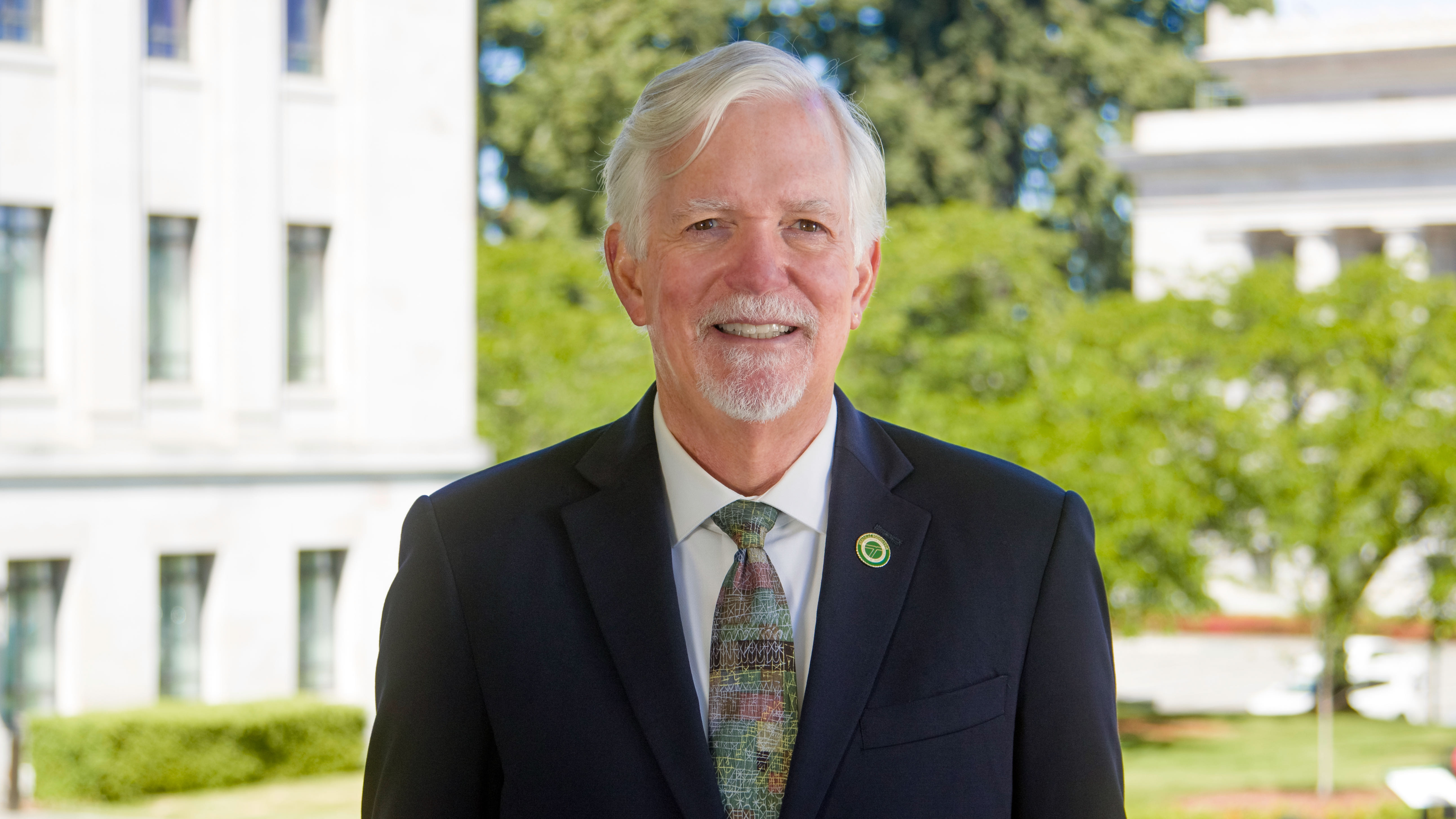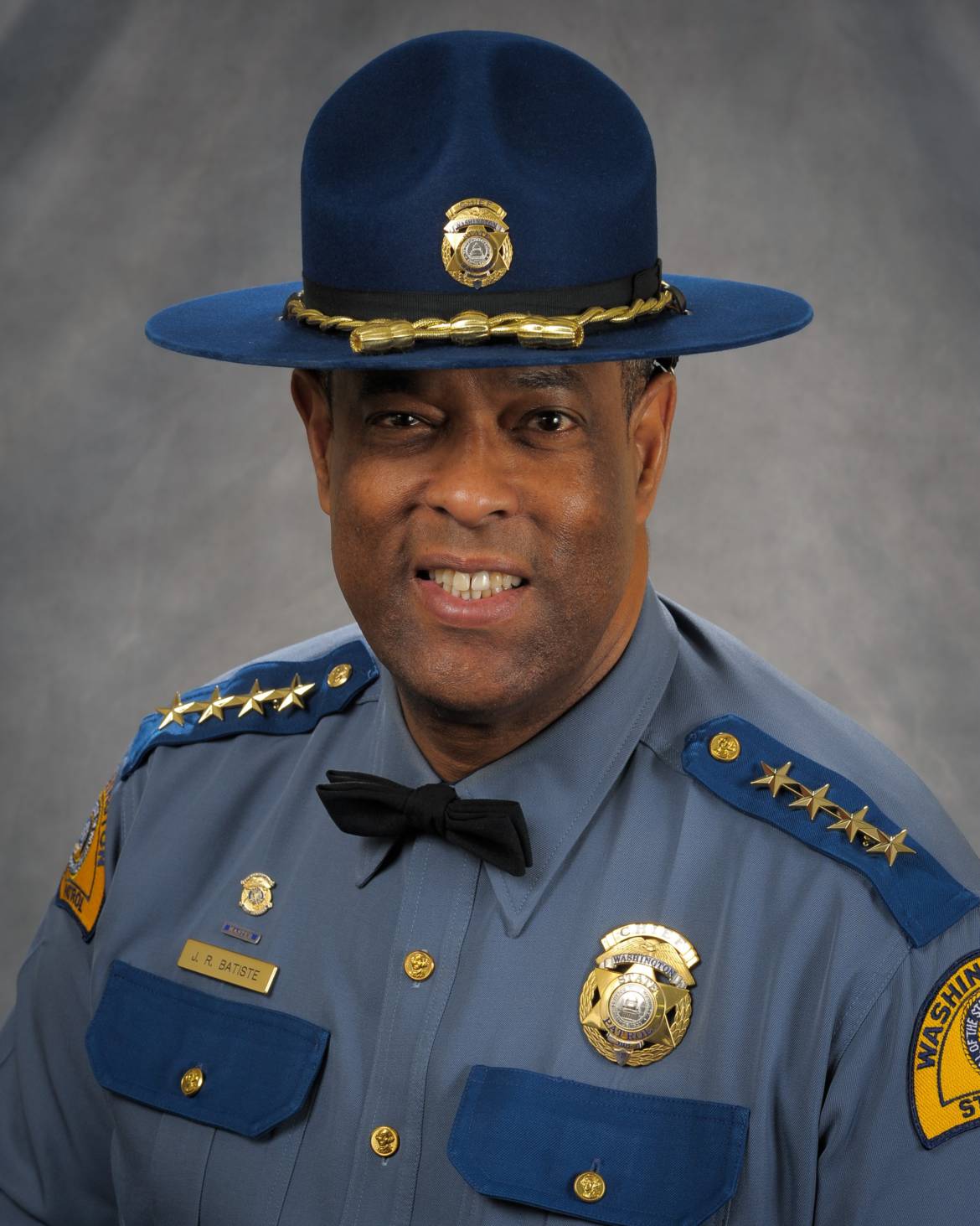Opening Plenary
Sunday April 2, 2023 at 8:30am
LIVESTREAM RECORDING
Keynote Speaker
Roger M. Millar, PE, FASCE, FAICP
Secretary of Transportation
Washington State Department of Transportation

Roger Millar joined the Washington State Department of Transportation as Deputy Secretary in October 2015 and was appointed Secretary of Transportation in August 2016. He oversees an agency that is the steward of a complex, multimodal transportation system, and responsible for ensuring that people and goods move safely and efficiently.
Secretary Millar is an experienced land use and transportation engineer, planner and program manager with an international reputation for innovative approaches to conservation and development. The prominent theme that has run through his career has been planning and implementing transportation systems that are not ends unto themselves; but rather the means toward economic vitality, environmental stewardship, social equity, public health, and aesthetic quality. His work on the Portland Streetcar and the Glenwood Springs to Aspen BRT provided communities nationwide with new mobility tools. His Complete Streets leadership helped create a national movement for transportation systems that are safe, convenient, and pleasant for all users, regardless of how they choose to travel. His State DOT leadership is bringing innovation to agencies with enormous influence on transportation investment.
Secretary Millar is a Fellow of the American Society of Civil Engineers (ASCE) and a Fellow of the American Institute of Certified Planners. He is the President of the American Association of State Highway and Transportation Officials (AASHTO), Chair of the Intelligent Transportation Society of America Board of Directors, President of the ASCE Transportation and Development Institute, and a member of the National Operations Center of Excellence Strategic Advisory Council and the National Complete Streets Coalition Steering Committee.
Secretary Millar graduated from the University of Virginia in 1982.
Mission Moment Speaker
David Jones

After losing his son in a road bike accident, David Jones has worked relentlessly to strengthen safety laws for people who bike. David's work has helped pass various legislation for biker safety and led to the development of Washington’s Cooper Jones Active Transportation Safety Council. We are honored to have him at Lifesavers 2023 to share his story.
A few words from David, "On a beautiful June evening in 1997 our 13-year-old son, Cooper, an aspiring bicycle racer, was struck from behind by a careless, negligent driver while competing with his club in a sanctioned event. He died a week later. No matter how hard you try, the words don’t exist to describe what that was like. His death and the aftermath and reaction made us promise that what happened to him would not be forgotten. Telling his story helped to change the way people thought about safety.
Twenty-six years later the climate has changed for the better, but there is still a long way to go. The system we live with today is the result of decisions made years ago. We can make different choices; we can do better."
Welcome messages from:
Shelly Baldwin
Director
Washington Traffic Safey Commission

Shelly Baldwin was appointed Director of Washington Traffic Safety Commission in February 2021. Ms. Baldwin is the first woman to serve as Director of WTSC since its formation in 1967.
Ms. Baldwin was hired as a full time WTSC employee in 2007 to manage the impaired driving program. She was responsible for coordinating the Washington Impaired Driving Advisory Council (WIDAC) with stakeholders who encompass policy, prevention, law enforcement, prosecution, judges, probation officers, public health, licensing, and treatment and rehabilitation. She advocated for impaired driving policies and legislation such as establishing ignition interlocks driver’s licenses for DUI offenders.
Since 2014, Ms. Baldwin has served as Director of WTSC’s Legislative and Media Relations division. She led the development of the agency’s legislative agenda in collaboration with commissioners, the Governor’s office, other state agencies, community partners, and citizen advocates. She also led the agency in adopting a proactive traffic safety culture approach to its messaging and programs. Having worked directly with traffic crash survivors and families of traffic crash victims, Ms. Baldwin understands deeply the importance of this work. Her personal commitment to service aligns perfectly with the WTSC’s vision of zero traffic deaths and serious injuries.
Ms. Baldwin graduated with a degree in English and Business from Washington State University.
AND
Chief John Batiste
Washington State Patrol

Chief John R. Batiste is the 21st Chief of the Washington State Patrol. Governor Christine Gregoire originally appointed Chief Batiste on February 14, 2005. On January 16, 2017, Governor Jay Inslee reappointed Chief Batiste to continue to lead the Washington State Patrol.
He oversees the day-to-day operations and manages the agency’s six bureaus: Commercial Vehicle Enforcement, Field Operations, Fire Protection, Forensic Laboratory Services, Investigative Services, and Technical Services.
Chief Batiste began his career with the Washington State Patrol in March 1976. He has promoted through the ranks of sergeant, lieutenant, captain, and deputy chief. Chief Batiste obtained his Bachelor’s Degree in Law Enforcement Administration from City University and is a graduate of Northwestern University’s Center for Public Safety School and Police Staff and Command, as well as a graduate of the Federal Bureau of Investigation’s National Executive Institute.
Chief Batiste has been involved in a variety of activities and organizations, including his work with the Kenya National Police Force to create a National Police Chaplain Program and the South African National Police Force to assist with training and procedures on ethical policing.
Chief Batiste is an Executive Board Member of the following: Washington Association of Sheriffs and Police Chiefs, Western States Information Network, Washington Criminal Justice Training Commission, Washington Traffic Safety Commission, Department of Justice/VALOR Advisory Board, International Association of Chiefs of Police (IACP) Governing Body, and was a past General Chair of the IACP State and Provincial Police Division. Chief Batiste serves as a member of the American Association of Motor Vehicles Region IV, National Organization of Black Law Enforcement Executives, and also serves on the Washington State Forensic Investigation Council, IACP Criminal Intelligence Coordinating Council, Governor’s Emergency Management Council, and the IACP Transnational Crimes Committee.


